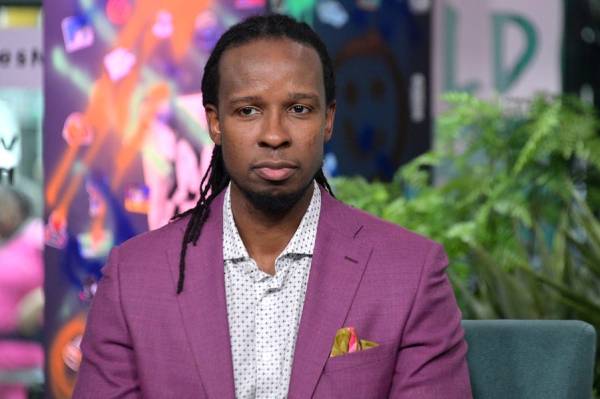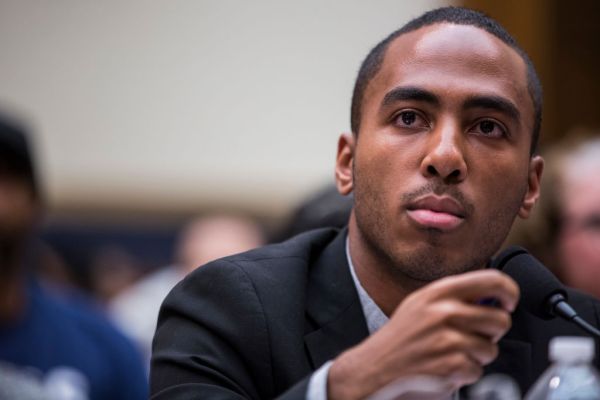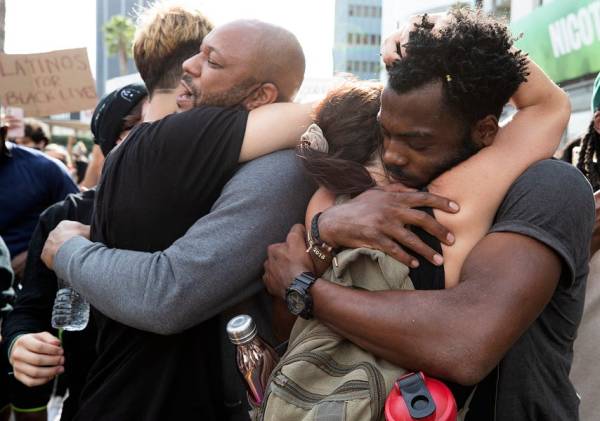As figures from J.D. Vance to Tucker Carlson were insisting that felinetarian Haitians had overrun the town of Springfield, Ohio, a few weeks ago, Matt Walsh decided to weigh in on the totally-real-and-not-nativist controversy with his typical journalistic rigor. “Import the third world, become the third world,” the Daily Wire podcaster declared in a video subtly titled, “Third World Immigrants Are Ruining Our Towns And Eating Our Pets, Literally.”
Walsh’s new movie, Am I Racist?, hit theaters four days later.
Am I Racist? is Walsh’s scathing and, at times, hilarious counterpunch to the woke culture that has taken over much of America’s laptop class, especially since the murder of George Floyd in 2020 and the ensuing summer of racial reckoning. It’s a Borat-esque mockumentary for people who get too many Ben Shapiro YouTube ads, and it points out without reservation that America’s diversity, equity, and inclusion (DEI) fad has been bedeviled by both groupthink and grift.
It does a fine enough job in that regard. Walsh stars as himself in a parodic arc of greater racial awareness, spending most of the movie disguised as a man-bunned, tweeded-up, certified DEI instructor. He eventually dupes various anti-racist true believers—most notably the author Robin DiAngelo of White Fragility infamy, who ends up contributing $30 cash in “reparations” to Walsh’s black producer, presumably to not seem insufficiently woke on camera. (DiAngelo, it’s worth mentioning, charged Walsh $15,000 for two hours of her time.)
At its best, Am I Racist? rightly points out how insular DEI lingo can be and how farcical its axioms become when faced with the least bit of scrutiny. Phrases like “de-centering your whiteness” this or “check your privilege” that might be commonplace in some corners, but they mean little to the black immigrant from British Guiana who looks befuddled when Walsh (in character) suggests America is plagued by “systemic racism.” Few people would insist, as one anti-racist trainer featured in the movie does, that the right age for parents to start talking to their kids about racism is “before they can talk.”
But if you’ve been paying attention to the various critiques of our race-conscious culture, you know this already. Walsh is neither the first nor the most sophisticated opponent of woke excesses. On the page, Thomas Chatterton Williams’ Self-Portrait in Black and White and Coleman Hughes’ The End of Race Politics explored these issues with far more rigor and imagination. On the screen, American Fiction and Tár critiqued woke pieties and censoriousness with far more humor and gravitas.
These books and films were critical of DEI adherents’ excessive preoccupation with race. But they weren’t dismissive of the continued existence of actual racism. As Williams writes in his book:
Without excusing the racists … who by all indications are both numerous and emboldened, today’s dominant liberal discourse—which sets up all whites as the nation’s only genuine actors, and blacks and other minorities as their hapless props—has too often been counterproductive.
That’s the fundamental failure of Am I Racist?, the main reason why the occasional laughs at an often-hollow DEI movement don’t make up for its lack of even a modicum of genuine introspection. (And if you think Walsh is just trying to be funny … c’mon.) It’s possible to recognize, as David French has suggested, that America’s race relations have both come so far and have further to go. But at no point in the movie does Walsh question why someone might be drawn to these anti-racist ideologies despite their obvious flaws, or explore whether any concern about racism in America today might count as valid. He’s like a first-semester socialist discovering capitalism as the monocausal explanation for all of the world’s problems, except in his case, it’s DEI that’s “driving” all race controversies in modern America.
Which, for starters, is an anachronistic attitude more suited for 2020 than 2024. Four years ago, anti-racist writers like Ibram X. Kendi were topping best-seller lists, major corporations were donating millions to Black Lives Matter, and many campuses were entertaining race-conscious workplace proposals or diversity statements. Today, Kendi’s reputation has taken a hit after running a center into financial shambles, corporations like Ford and Lowe’s are gutting their DEI programs, and the post-affirmative action college landscape is abandoning diversity statements and adopting institutional neutrality. Even Kamala Harris barely mentioned demographic identity in her speech last month accepting the Democratic presidential nomination.
But more to the point, consider this hypothetical. Let’s say you’re a generally apolitical person. You don’t occupy the spaces where privilege walks and land acknowledgments are familiar, but you’re also not addicted to right-wing revanchism where the only acceptable theories of race are either that the issue was essentially “solved” by Martin Luther King Jr. back in the ‘60s or that “Democrats are the real racists.” If you had to choose one of the following as a spokesperson on race and identity, who would you pick?
Ibram X. Kendi (“The only remedy to racist discrimination is antiracist discrimination”) or Tucker Carlson (“Iraq is a crappy place filled with a bunch of, you know, semiliterate primitive monkeys”)? Nikole Hannah-Jones (“One critical reason that the colonists declared their independence from Britain was because they wanted to protect the institution of slavery in the colonies”) or Charlie Kirk (“If I see a Black pilot, I’m going to be like, ‘Boy, I hope he’s qualified.’”)? Robin DiAngelo (“White people do not exist outside the system of white supremacy”) or Matt Walsh himself (“White people are the only humans on Earth who aren’t allowed to be proud of their identity and history”)?
The correct answer, of course, is “pass.” Neither extreme is productive. But if someone feels forced to choose between these two sets of the loudest voices, is it really surprising that he or she might pick the one that seemingly overcorrects against racism instead of the one that ignores it—or even foments it?
Again, zealous anti-racists like Kendi, Jones, and DiAngelo are preaching a message that is often both myopic and illiberal. Our conversations about race and identity would be far more constructive if we left it behind. But an honest assessment of race in America today would at least entertain the possibility that people have been driven to DEI precisely because they find in the likes of Carlson, Kirk, and Walsh a disposition toward race they want nothing to do with.
Walsh can jab at woke true believers for logical leaps and trite catchphrases. He can even denounce and satirize their willingness to indulge flatly bigoted ideas as “whiteness also robs you of your brain,” which is a string of words that anti-racist self-help coach Saira Rao actually says out loud in the movie. But it’s difficult to regard DEI as the sole obstacle to better race relations today—as evidenced by the movie’s release coinciding with the Springfield affair.
Just earlier this week, Louisiana Rep. Clay Higgins hit send on a tweet that begins, “Lol. These Haitians are wild” and gets worse from there. Right-wing provocateur Benny Johnson published a video in which someone yells at a black man (presumably a Haitian migrant), “Don’t wave at me you a f—ing sand monkey.” And Matt Walsh himself added: “We do not erase the downsides of importing many thousands of Haitians every year just by importing them legally. … We don’t want America to be like those places.”
Insofar as Am I Racist? tries to lampoon the ridiculousness of woke excesses, it’s funny enough, if repetitive by the time the credits roll. But as a look at why our racial conversations are so fraught, Matt Walsh’s movie is a predictable failure, one that leaves you wondering why he has such evident blind spots.







Please note that we at The Dispatch hold ourselves, our work, and our commenters to a higher standard than other places on the internet. We welcome comments that foster genuine debate or discussion—including comments critical of us or our work—but responses that include ad hominem attacks on fellow Dispatch members or are intended to stoke fear and anger may be moderated.
With your membership, you only have the ability to comment on The Morning Dispatch articles. Consider upgrading to join the conversation everywhere.